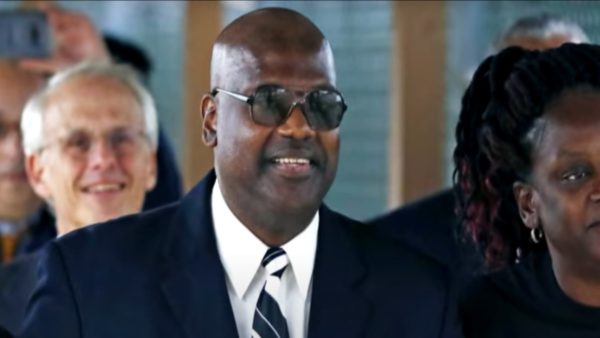Mississippi prosecutors have dismissed charges against Curtis Flowers, a Black man who was tried six times for a 1996 quadruple murder, according to a representative of the state’s attorney general. Flowers spent 23 years behind bars, during which multiple convictions were overturned.
Flowers was pursued by prosecutor Doug Evans as the primary suspect in the 1996 murders of Tardy Furniture owner Bertha Tardy and employees Carmen Rigby, Robert Golden and Derrick Stewart, who were all shot with a .380-caliber pistol. Flowers worked at the store for a brief period.
Prosecutors said he killed Tardy because she fired him and docked his pay, then killed the three other employees because they were witnesses to the crime.
Evans took Flowers to trial six times. Four trials ended in convictions, two in mistrials. Last June, the Supreme Court struck down the latest conviction, and prosecutors have now decided not to pursue the case. Flowers had previously been sentenced to death by a Montgomery County jury.

Colby Jordan, a spokeswoman for the the Mississippi attorney general said that all four indictments against Flowers have been dropped.
“It is in the interest of justice that the State will not seek an unprecedented seventh trial of Mr. Flowers,” the Mississippi Attorney General’s Office said.
On Friday, Flowers, 50, released a statement through his attorneys: “Today, I am finally free from the injustice that left me locked in a box for nearly twenty three years,” the statement read, as reported by multiple outlets. “I’ve been asked if I ever thought this day would come. I have been blessed with a family that never gave up on me and with them by my side, I knew it would.”
Deputy Attorney General Mary Helen Wall wrote in a court filing that there are no living key prosecution witnesses that incriminate Flowers who have not made conflicting statements, which includes the state’s star witness, a jailhouse snitch who claimed at trial that Flowers confessed to him that he’d committed the murders. That informant has since recanted.
“The case against Curtis Flowers never made sense,” one of Flowers’ attorneys, Rob McDuff, said. “He was 26 years old with no criminal record and nothing in his history to suggest he would commit a crime like this. As time went by, even more evidence emerged to corroborate his innocence.”
McDuff also alleged that Flowers had been a victim of discrimination. Prosecutor Evans and three of the four victims are white, and Flowers is Black. The Mississippi Supreme Court has ruled that prosecutors had misrepresented evidence and intentionally eliminated Black jurors in several trials.
He was convicted by an all-white jury in the first trial, and his second, third and sixth trials ended in convictions by juries with only one Black juror.
The family released a statement upon Flowers’ release, saying: “We have prayed for this day and are looking forward to the future knowing that our brother will not be going back to prison. We know our Mom is looking down and our only wish is that she could have been here to welcome Curtis home.”


